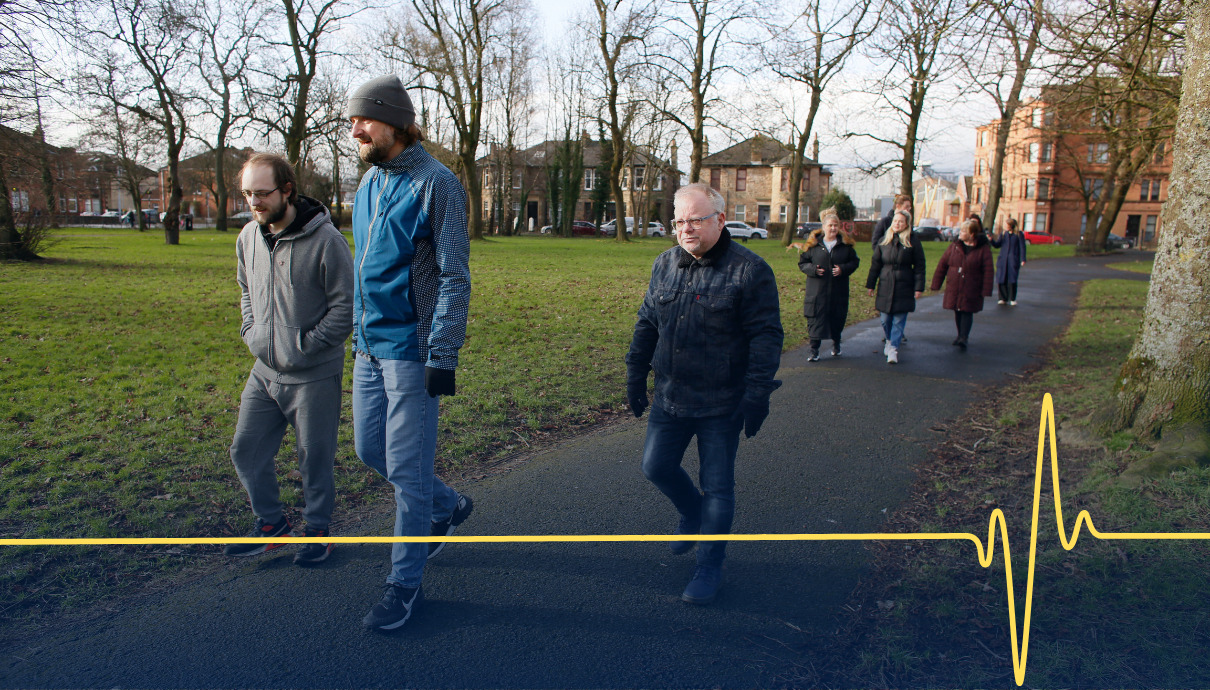With most appointments with GPs scheduled for just ten minutes, The Ferret heard from doctors based in Scotland’s most deprived areas about the systems they developed to help provide the healthcare their patients needed. They claim they proved ways forward that all GP practices can learn from.
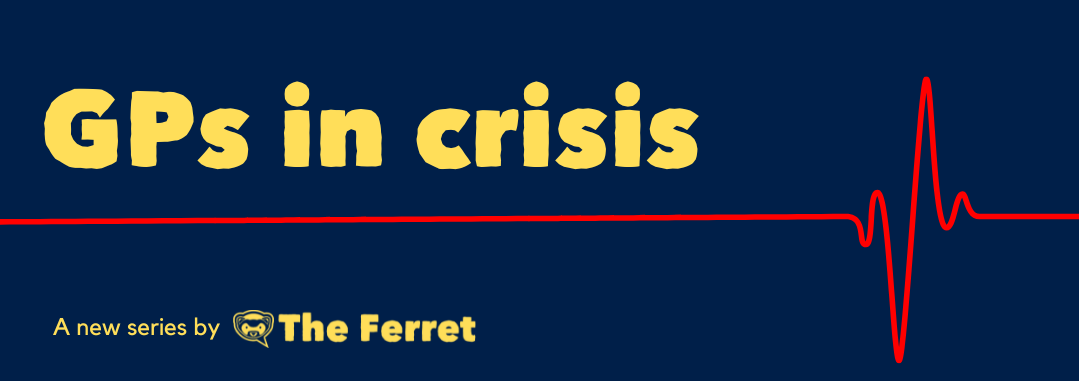
It’s a blustery day, threatening rain, and at the gates of Glasgow’s Elder Park, in Govan, Kirsty Anwar is waiting nervously for Emma Macdonald, who is leading today’s healthy walking group.
The last year has been a tough one for Anwar, who has lost both her elderly parents and is struggling with the impact of bereavement on her mood, along with other health issues. Coming along to this weekly group for the first time feels like a positive “baby step” for her health and wellbeing, she says.
Her GP at the nearby David Elder medical practice in Govan Health Centre referred her to Emma, who as a community link worker, has the time and resources to help support her with the sort of non-medical issues that can be life-changing.
With most appointments with GPs scheduled for just ten minutes, The Ferret has heard from people across Scotland struggling to get the help they need within that time slot and from GPs who feel unable to provide it.
But with a link worker, appointments can last up to an hour, allowing Macdonald to ensure Anwar feels listened to and gets the right support wrapped around her – from counselling to women’s confidence building sessions, or groups like this one. As link workers are attached to a GP practice, they can easily refer back to the doctor if anything needs clinical attention.
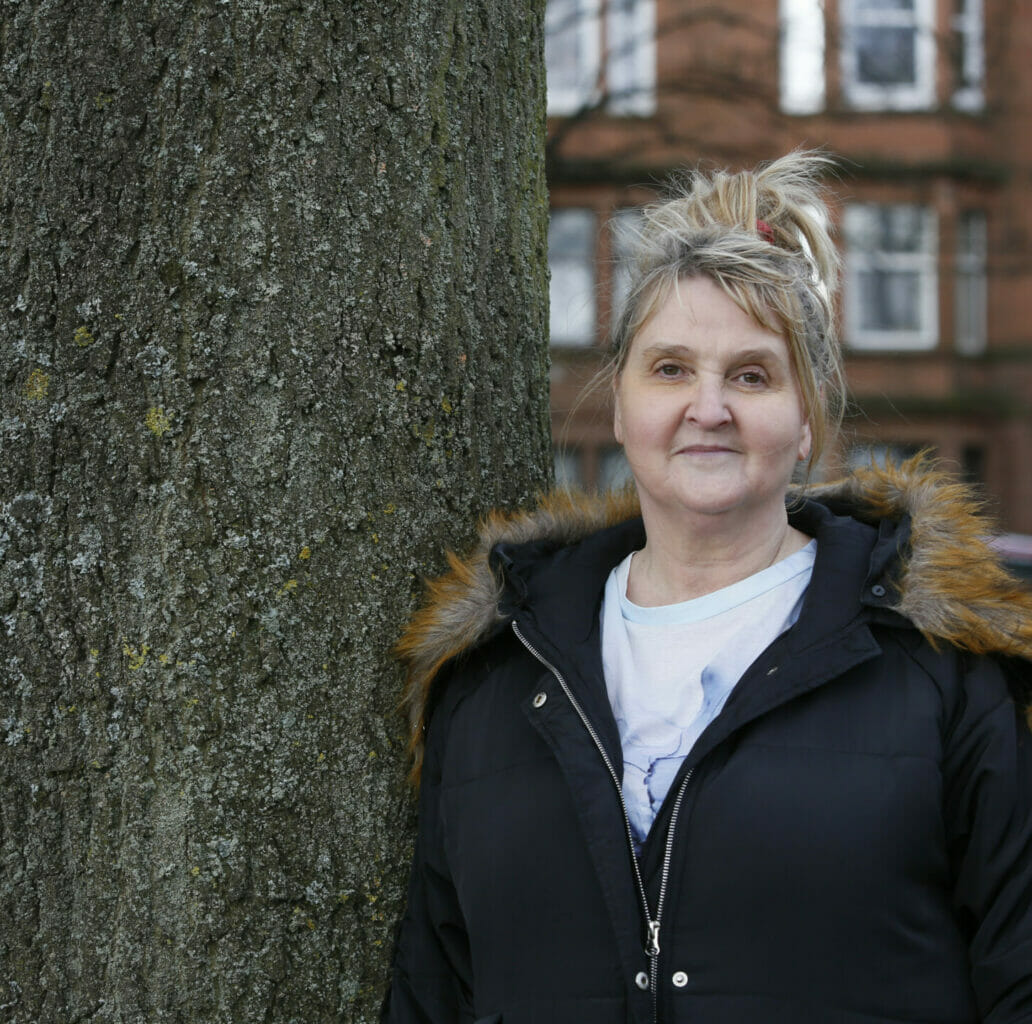
The idea emerged from GP practices like Anwar’s – one of the 100 most deprived in Scotland which are all part of the Deep End project, a network intent on addressing health inequalities and improving the way primary care is delivered. It was one of the first to have a link worker as part of a Scottish Government funded pilot in 2014.
An evaluation of the scheme in 2016 was clear about the benefits and the project rolled out to 250 practices across Scotland.
For Kirsty and others here, it’s a big help. “There’s a lot going on in the mix for me,” she explains. “Health issues, struggling with my mood…so I don’t really like to go out. But when you speak to other people you realise that it’s not just you that’s struggling.”
Thomas Devine, also here for the first time with his link worker, Chris Mitchell, to help get him out and address issues from smoking to mental health and energy advice, agrees. “This is a nice gentle starting point if people haven’t been active,” adds Mitchell. “But it’s not just about physical activity, it’s about reducing social isolation.”
For Martha Murray who’s been coming for months, it’s the inspiration to get fit. “I joined on Monday,” she says. “I was on the rowing machines and the bikes. I’ve got high blood pressure and asthma so I don’t want to get worse as I get older.”
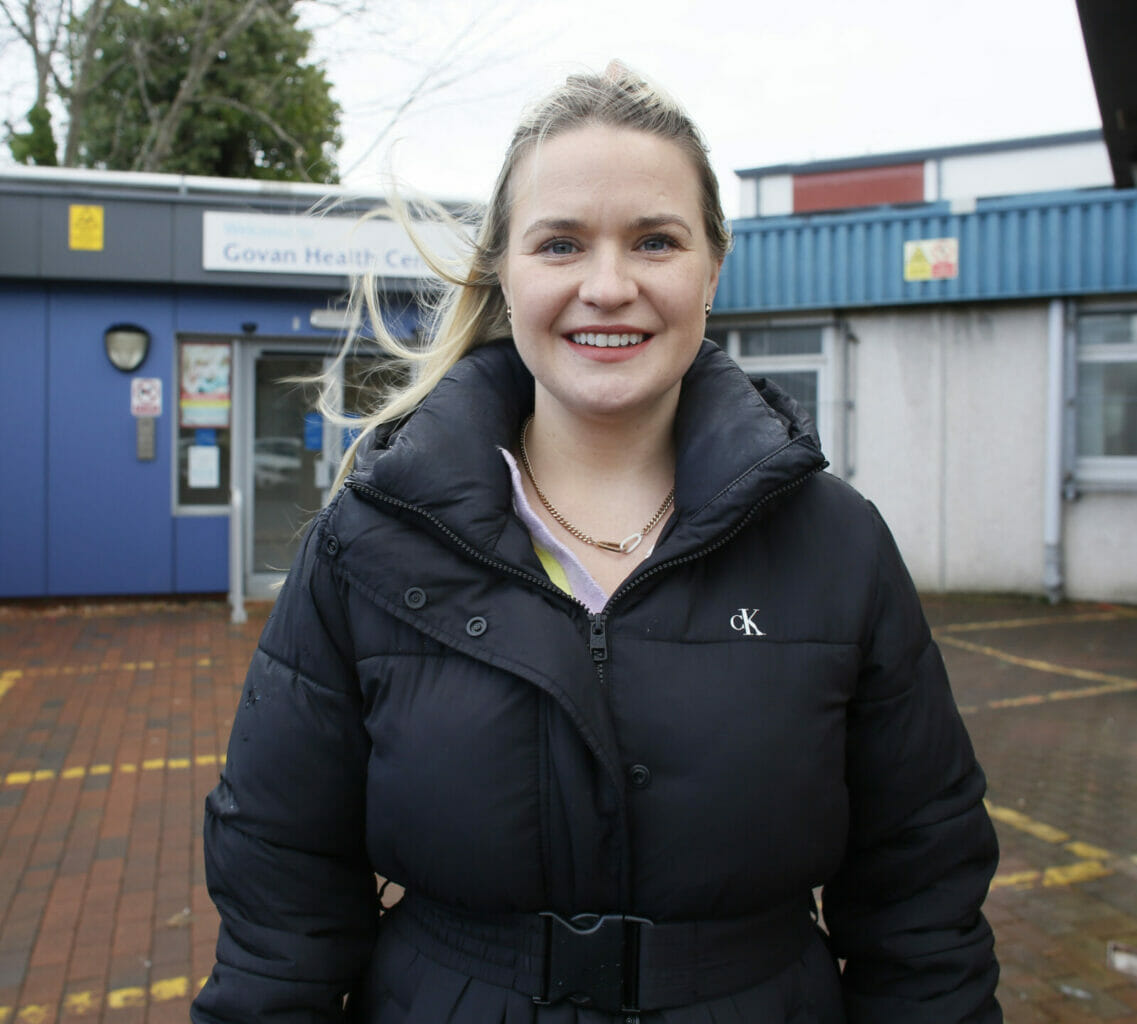
Back at Govan Health Centre later, Dr John Montgomery, one of the four partner GPs at the David Elder Practice, is enthusiastic about the benefits of the scheme but realistic about its limits too – despite some expansion programmes, with 900 GP practices across Scotland there just aren’t enough link workers available. Even some Deep Practices don’t have one, he says.
His practice consulting room is dotted with Star Trek memorabilia and there’s a framed picture of the Starship Enterprise on the wall. Like the show’s creator, Gene Roddenberg, Montgomery he believes in the potential of the future and in our collective ability to find a way for everyone to “live long and prosper”.
Yet the symptoms of the GP crisis can be found even in this stable, well-staffed practice. “In the winter we had the triple whammy of Group A Strep terrified parents, and ongoing Covid and Influenza A outbreaks,” he says. “We had a record of 80 emergency appointments in one day alongside the usual workload. We had the chairs spaced out down the corridor. You hear about people waiting in trolleys in A&E but we had our own version here.”
“The main issue is that we are an under-doctored country,” he says. “Too many are training to be consultants and not enough of them are GPs.” It’s a point that he is reminded of daily as the consultant-led “super hospital” – the Queen Elizabeth – is within sight.
Yet, he insists there are other solutions that have emerged from the Deep End, that he and colleagues have already proved are workable.
The flagship one is the Govan Ship, a project launched in the same year as the link worker pilot. It aimed to reduce health inequalities that see men from the most deprived parts of Scotland dying almost 14 years earlier than those from the least deprived. The gap is 10.5 years for women.
In GP practices, especially deprived ones like this, the minority need the majority of the care on offer. “Ten per cent of the patients will make up 40-50 per cent of your workload,” Montgomery says.
His patients don’t come with one ailment. It’s a mix of physical problems – cardiac disease, respiratory disease, diabetes, high blood pressure – compounded by social problems like housing, finance and employment. “Put that toxic mix together and you get depression and anxiety too,” he explains.
If you are a practice serving an affluent area, or a rural population, the Ship template might not fit your demographic. But it shows you can design a model to suit and encourages other practices to look at change.
Dr John Montgomery, David Elder practice
These patients typically made frequent trips to the surgery and often reached crisis points or even A&E admissions.
The Ship dared to dream of doing it differently. Two newly qualified doctors were brought into Govan Health Centre to work across its four practices, freeing up time for senior partners to focus some of their time on intensive and preventative care for patients most in need.
“That might be arranging an extended consultation of 30mins,” Montgomery says. “Or reviewing medication for a patient on ten different drugs though it’s clearly getting them nowhere.
There were home visits where GPs found frail patients struggling to cope after a hospital discharge, or others who needed social care support when a carer went into hospital. It might mean arranging psychiatric support, reviewing dementia patients or identifying children at risk and families in need for extra help.
There were also monthly meetings, attended by a GP, practice nurse, mental health nurse, health visitor, pharmacist and social workers, so that information could be shared, dots joined and proper support put in place.
In other words, says Montgomery, “interventions, tailored for the needs of each patient. He laughs dryly: “Isn’t that radical?”
It got to the root of patients’ issues and was also beneficial for doctors and helped with recruitment and retention. One GP told researchers it gave them control over a job that otherwise made them feel like they were “constantly firefighting”.
Newly qualified doctors got experience, support, bonded with their practices and stayed. Three of the four partners at the David Elder practice are Montgomery’s trainees, he explains with obvious delight.
The impact was also on the system, with a 12 per cent reduction in demand for GP appointments at a time when similar practices were recording a rise. “So we were really bucking the trend of what was going on,” says Montgomery.
It showed, too, that other ways of working were possible. “If you are a practice serving an affluent area, or a rural population, the Ship template might not fit your demographic,” he acknowledges. “But it shows you can design a model to suit and encourages other practices to look at change.”
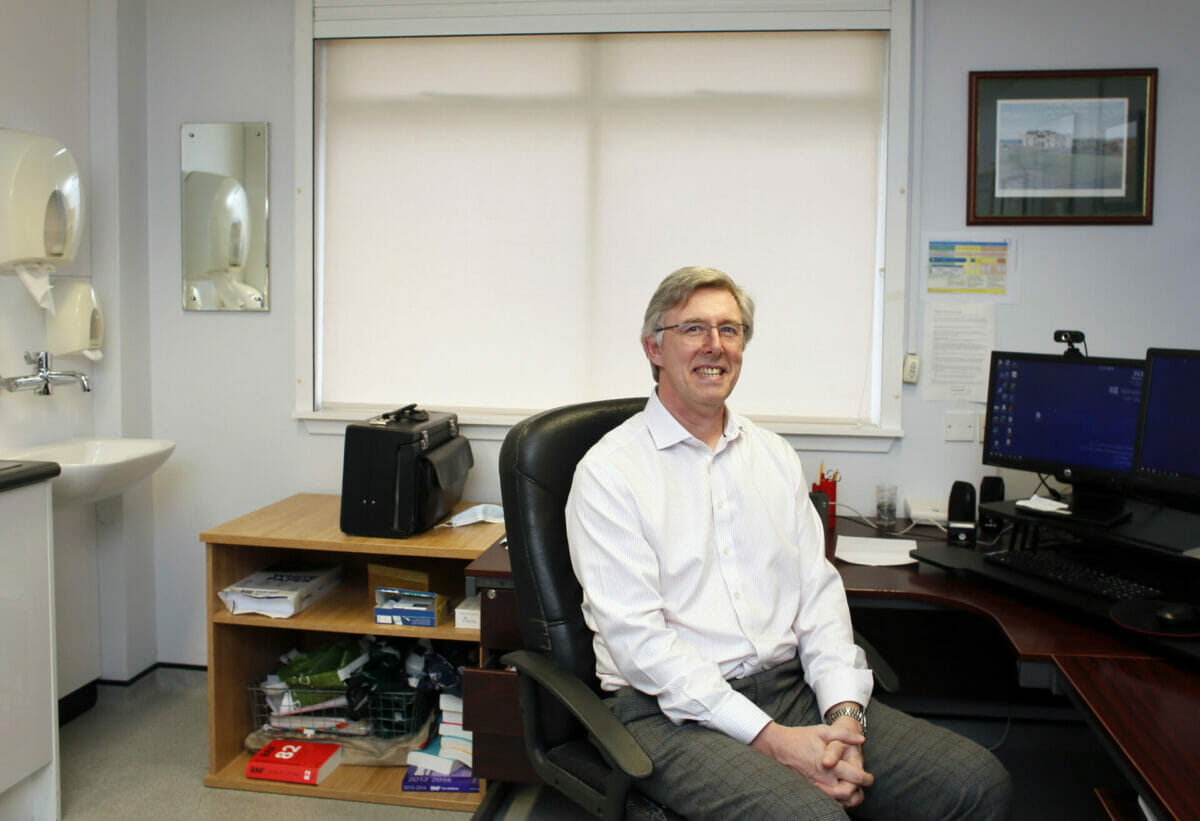
At the end of four years Scottish Government civil servants agreed they had proven it was effective, but said they would step back with the hope that funding could be found within Glasgow’s health and social care budgets to help it expand.
What happened next is not what the Ship’s architects expected. Their ask coincided with the introduction of the new GP contract in 2018, which Montgomery claims is overly prescriptive in what it will fund.
He was told the project did not meet the criteria. “It was hugely frustrating,” he says. He had worked out a funding model that would have allowed for it to be rolled out across 50 practices in the south of Glasgow. Equally, he says, it could have been rolled out across every Deep End practice in Scotland.
“We know there’s financial constraints but the amount of money it would cost to implement Ship in the context of the NHS budget is minuscule.”
He also worries the costs of not implementing it could have included lives. His practice has seen two drug deaths this year – in one case a man on methadone had a mental health crisis, poured turpentine over his body and set fire to himself.
“I can’t know if that outcome could have been any different,” he says. “But certainly those are the cases we would have been talking about at multi-disciplinary team meetings under the Ship.”
Last year the Ship was offered a reprieve of sorts, with its fundamental principles recommended for roll-out by the Scottish Government’s primary care health inequalities short life working group.
But the work has not yet been implemented. A letter was sent to Humza Yousaf, Cabinet Secretary for Health, making the case for it to be addressed more urgently late last year.
A Scottish Government spokesperson told The Ferret that work was underway with grant funding provided to Deep End PGs to allow them to participate in meetings, run external events and produce briefings about health inequalities.
They claimed tackling health inequalities was “a key priority” and said lessons from the Govan Ship had been taken onboard.
Montgomery insists action is needed urgently to stop the deepening GP crisis. “If you think the pressures on A&E have been awful so far, those will be as nothing if greater numbers of practices close and patients have no access to their local practice,” he says.
The whole system is under threat. More time and better connections will make the crucial difference preventing crises and complications and improving health while reducing the burden on A&E services.
Professor Graham Watt
Last year 11 practices were taken over by the health boards across Scotland. Research earlier this month by The Company Chemists’ Association found closures were more frequent in deprived areas.
Deep End doctors claim that’s why recruitment is a key priority in these areas and yet funding for the Pioneer scheme, a fellowship training programme for young doctors, was also ended in 2020 despite inspiring a similar and successful scheme in England.
Like the Ship it also offered time for partner GPs to develop work outside of their surgeries, with fellows filling the gaps in a supportive environment.
Dr Maria Duffy, a partner at the Peat Road practice in Glasgow’s Pollok, which had a Pioneer fellow in 2019, explains: “With the additional time it provided, our four senior partners looked at different issues in depth. One looked at sleep and invited patients to a sleep lecture, another looked at the importance of diet and good nutrition, someone else looked at relaxation and I looked at exercise.”
She developed a Pollok version of the viral 23.5 hours video by US-based Doc Mike Evan in which he runs through the extraordinary success profile of the “treatment” of 30 mins of daily exercise.
These simple interventions worked wonders for both patient and doctor satisfaction, she claims. “It’s very easy for the solutions to be medications but there are lots of other things we can do on our own to improve our health.” She, too, is disappointed that there is no longer time to push forward with the work.
The Royal College of General Practitioners in Scotland says work on retention and recruitment is crucial. In a report published last December, it said GPs and their teams urgently needed “protected time within their working week” for learning and development and called for “improved induction and career support programmes” for early career GPs.
Its data showed 43 per cent of GPs who had left the profession in the last 15 years had done so due to burn-out or work stress. But they admitted that, with GP training taking a decade, there was no “silver bullet” to fix the crisis.
The Scottish Government says work is ongoing to consider a proposal on GP fellowships.
Graham Watt, professor emeritus in general practice and primary care at Glasgow University, is all too familiar with the current frustrations.
The situation is made worse by Covid, he says, and by the cost of living crisis and its mental health consequences along with “the lack of investment in general practice compared with the 50 per cent increase in specialist services over the last twenty years”.
His prescription for GPs? “More time and better connections”, he claims will make the crucial difference “preventing crises and complications and improving health while reducing the burden on A&E services”. While investment to address health inequalities in early years is desperately needed, this can improve health and narrow the gap in the short-term, he insists.
But without that his diagnosis is stark: “The whole system is under threat.”
All pictures thanks to Angela Catlin
GPs in Crisis is an investigation by The Ferret examining the pressure on doctors and patients at the frontline of community healthcare. Support our journalism by becoming a member for £5 a month at theferret.scot/subscribe.
This story is part of our Health Gap project, funded by the European Journalism Centre, through the Solutions Journalism Accelerator. The fund is supported by the Bill & Melinda Gates Foundation.












